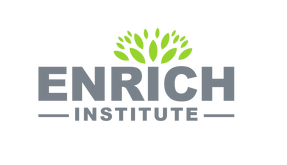|
By: You Sokunpanha High-school seniors in Cambodia are anxiously awaiting the results of the school-leaving examination they sat just over two weeks ago. For many, the exam was the culmination of years of hard work and gruelling preparation. How they performed in it is crucial, because it will determine their chance of a place in university, which will, in turn, help or harm their future employment prospects. Sadly, there was evidence of widespread bribery and cheating during the exam. Stories have circulated of proctors who set a “quota” – the amount of money raised by those sitting the exam in each room – that had to be paid in return for a blind eye towards blatant acts of plagiarism including copying from “cheat sheets” that were allowed into test centres. For extra money, some proctors reportedly even offered to write papers on test-takers’ behalf. That such practices occur at all is unfortunate, though not surprising.
Even the most stringent, well-thought-out proctoring system cannot eliminate cheating. But the most worrying aspect is that the practice of bribery, in exchange for cheating, is now so pervasive that it is accepted as a fact of life and ceases to “feel wrong” or to shock the consciences of those involved. On one hand, some proctors treat exams as an opportunity to “earn” extra income. On the other, some students simply opt to pay to pass exams instead of studying and preparing for them. In addition, parents are willing to give their children money to bribe proctors, and a small industry has sprung up to supply test-takers with cheat sheets, often with the claim that questions covered in these cheat sheets will also be on the real exams. Not all engage in this corrupt practice, but the consequences of tolerating it can be grave. Students are ill-served by a system that allows an easy pass. Presented with the option of paying for their degree, students have fewer incentives to apply themselves to their studies. They may fail to gain through schooling the skills and knowledge needed to lead a fulfilling life and become productive, responsible citizens able to contribute to their country’s development. Furthermore, in a more globalised society, they will find it difficult to compete with the knowledge workers of other countries in the region and the wider world. I also cannot help but wonder how this experience shapes the moral character of 18-year-old examination candidates. In addition to being a yardstick for university admission, a high-school degree is a symbol of intellectual accomplishment that is worthy of recognition and praise. That it can be bought and sold so readily may send the wrong signal to young Cambodians that money reigns supreme over honour and respect, and is an acceptable alternative to hard work and real effort. Surely this is not a lesson we want to leave our children with. Addressing this issue is not easy, but it is possible. The Ministry of Education, Youth and Sport can begin by introducing a zero-tolerance policy towards cheating and bribery during exams. Proctors who solicit, or accept, bribes should be barred from supervising future exams and be denied promotion. Depending on the seriousness of their actions, students caught cheating should be required to sit for the examination again, have their grades reduced or given an automatic fail. At the same time, the education system needs to be reformed to focus more on critical thinking and analytical skills and less on rote learning and exams. Instead of using examination results as the sole admission criterion, for example, universities should introduce other requirements such as admission essays that challenge students to carefully think about, and articulate, their reasons for wanting a tertiary education. And these measures should be complemented with longer-term policies aimed at recruiting, training and retaining capable teachers through both an appeal to their sense of public service and reasonable remuneration. Most important, fixing the problem requires a concerted effort by all of society – students, parents, educators, policymakers – to refuse to take part in a fraudulent practice. A good sign will be when bribery and cheating, instead of being widely accepted and unquestioned, once again becomes a taboo. About the author: You Sokunpanha is a Master of Public Policy candidate at the University of Michigan. The article originally appeared in the Phnom Penh Post on August 27, 2012.
1 Comment
6/9/2015 11:08:25 pm
Secured home change credit is offered to the borrowers at lower interest rate and minimal effort. The credit is paid back in reimbursement time of borrowers' decision according to their monetary limit. The article makes borrowers more educated about alluring components of the credit.
Reply
Leave a Reply. |
Categories
All
Archives
October 2017
Disclaimer: All views expressed here belong to their respective author and do not represent the views of Enrich Institute
|

 RSS Feed
RSS Feed
